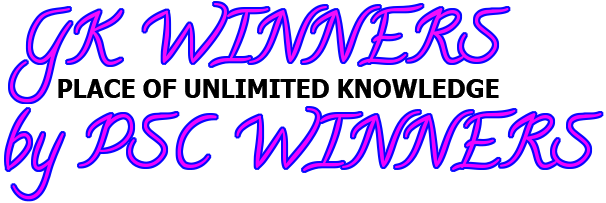Chemistry- Questions and Answers 11
321. Wax is soluble in:(a) Benzene (b) Water
(c) Alcohol (d) Iodine
Answer: (a)
322. The acid contained in onion:
(a) Oxalic acid (b) Citric acid
(c) Malic acid (d) Prussic acid
Answer: (a)
323. Element obtained from seaweeds:
(a) Chlorine (b) Calcium
(c) Iodine (d) Magnesium
Answer: (c)
324. What is added to gold to make ornaments?
(a) Copper (b) Tin
(c) Lead (d) Aluminium
Answer: (a)
325. An element essential for the functioning of the Thyroid gland:
(a) Vanadium (b) Chlorine
(c) Iodine (d) Magnesium
Answer: (c)
326. What is known as ‘Fool’s Gold’?
(a) Iron oxide (b) Iron Pyritis
(c) Silicon dioxide (d) Copper sulphate
Answer: (b)
327. Among the following metal which one will float in water?
(a) Aluminium (b) Zinc
(c) Mercury (d) Sodium
Answer: (d)
328. The gas obtained from cow dung:
(a) Methane (b) Chlorine
(c) Ozone (d) Ammonia
Answer: (a)
329.The most abundant organic compound in nature:
(a) Glucose (b) Cellulose
(c) Sugar (d) Benzene
Answer: (b)
330. The water in which soap does not lather easily because of the presence of certain chemicals, known as:
(a) Hard water (b) Heavy water
(c) Contaminated water (d) Soft water
Answer: (a)
331. The rarest element:
(a) Rhodium (b) Platinum
(c) Astatine (d) Radon
Answer: (c)
332. The setting of plaster of Paris involves which among the following process?
(a) Oxidation (b) Dehydration
(c) Reduction (d) None of these
Answer: (a)
333. The glass used to make windshields of motor vehicles:
(a) Flint glass (b) Safety glass
(c) Pyrex glass (d) None of these
Answer: (b)
334. Alcohol obtained through the .......... of sugar solution is Ethanol:
(a) Fermentation (b) Reduction
(c) Ionisation (d) None of these
Answer: (a)
335. ...... % Acetic acid is known as Glacial
Acetic acid:
(a) 50 (b) 10
(c) 25 (d) 100
Answer: (d)
336. Amyl acetate has the smell of:
(a) Grapes (b) Orange
(c) Pineapple (d) Banana
Answer: (d)
337. Which one of the following is not applicable to metals?
(a) High Melting point (b) High Boiling point
(c) High density (d) Low melting point
Answer: (d)
338. The volume of liquid is measured in:
(a) Litre (b) Gram
(c) Metre (d) Yard
Answer: (a)
339. The material used for the bomb dropped in Nagasaki:
(a) Plutonium (b) Thorium
(c) Uranium (d) None of these
Answer: (a)
340. Which human organ is first affected by nuclear radiation?
(a) Brain (b) Liver
(c) Heart (d) Kidney
Answer: (a)
341. Which metal contributes the largest portion of the mass of the earth?
(a) Aluminium (b) Magnesium
(c) Iron (d) Nickel
Answer: (c)
342. Which element has the smallest atom?
(a) Hydrogen (b) Helium
(c) Lithium (d) Boron
Answer: (a)
343. The mineral added to cement to adjust the duration of setting:
(a) Epsom (b) Sodium
(c) Lime (d) Gypsum
Answer: (d)
344. Which one of the following is not in crystalline form?
(a) Table salt (b) Blue vitriol
(c) Rubber (d) Sugar
Answer: (c)
345. The most abundant mineral in seawater:
(a) Sodium (b) Magnesium
(c) Calcium (d) Chlorine
Answer: (d)
346. Which metal is used to make the covering of nuclear reactors?
(a) Lead (b) Uranium
(c) Tin (d) Copper
Answer: (a)
347. Which is added to petrol to reduce knocking:
(a) Ethyl Mercaptan (b) Tetra Ethyl Lead
(c) Gas Oil (d) Benzene
Answer: (b)
348. The first organic compound prepared in the laboratory:
(a) Ammonia (b) Urea
(c) Methane (d) Benzene
Answer: (b)
349. Which is known as ‘Artificial Silk’?
(a) Dioxin (b) Nylon
(c) Cellulose (d) Rayon
Answer: (d)
350. Which one of the following is an isotope of Hydrogen?
(a) Protium (b) Deuterium
(c) Tritium (d) All of these
Answer: (d)
PSC Solved Question Papers ---> Click here
PSC TODAY's EXAM RESULTS ---> Click here
PSC EXAM PROGRAMME -> Click here
CURRENT AFFAIRS QUESTIONS -> Click here
PSC Degree Level Questions & Answers - Click here
PSC 10th, +2 Level Questions & Answers - Click here
PSC RANK LISTS / SHORTLISTS -> Click here
TEACHING APTITUDE TEST (K-TET, C-TET,, etc.) ---> Click here* SCERT KERALA TEXTBOOKS FOR CLASS II, IV, VI, VIII, IX, X, XII – FREE DOWNLOAD ---> Click here
* NCERT & CBSE TEXTBOOKS FOR ALL CLASSES – FREE DOWNLOAD ---> Click here
* SCERT TEXTBOOKS SOLUTIONS FOR ALL CLASSES ---> Click here
* NCERT & CBSE TEXTBOOKS SOLUTIONS FOR ALL CLASSES ---> Click here






0 Comments